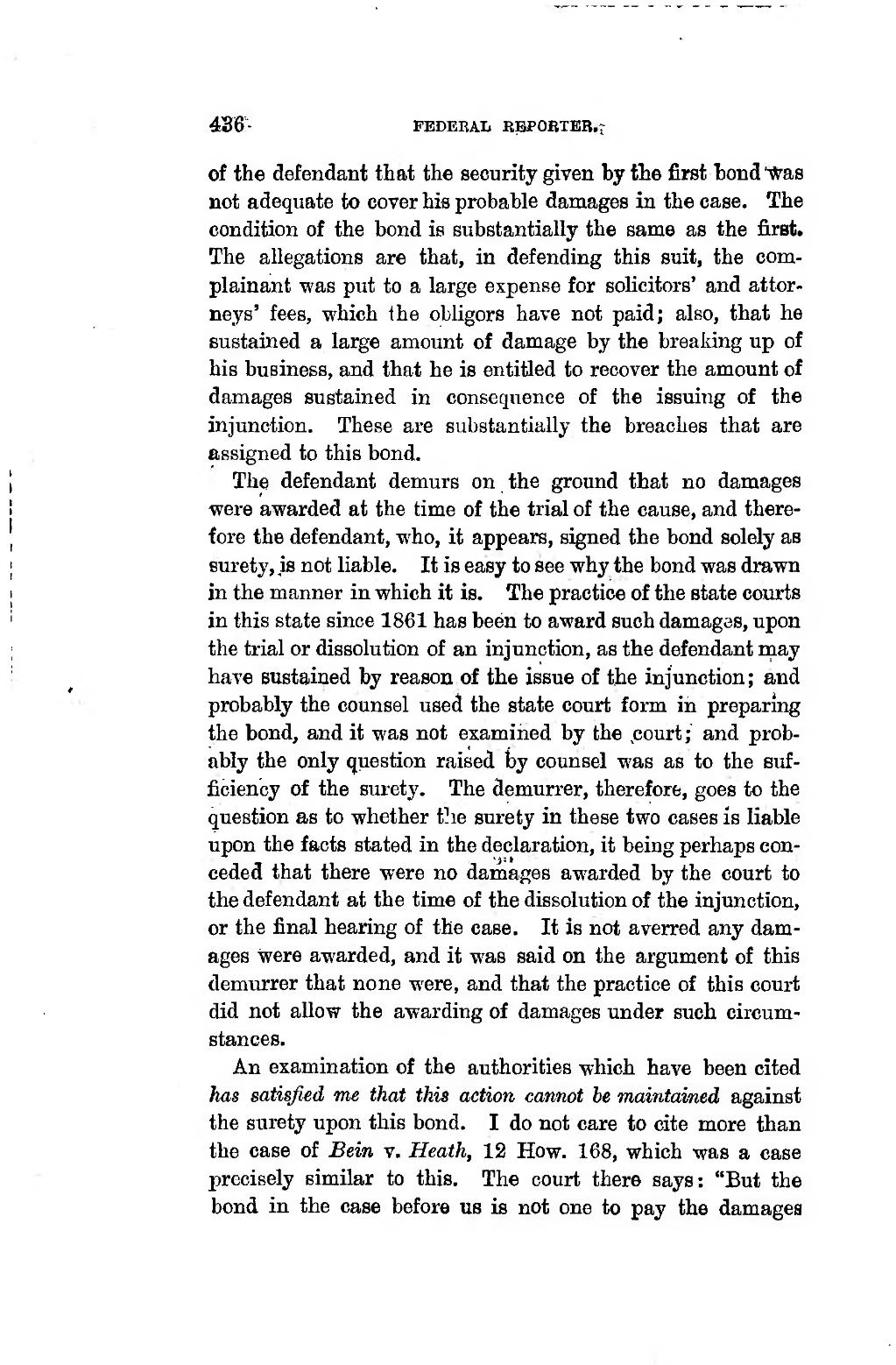436- FEDERAL RBPOBTEB.r �of the defendant that the security given by the first bohd'^as not adequate to cover Ma probable damages in the case. The condition of the bond is substantially the same as the first. The allegations are that, in defending this suit, the com- plainant was put to a large expense for solicitors' and attor- neys' fees, which ihe obligors bave not paid; also, that he sustained a large amount of damage by the breaking up of bis business, and that he is entitled to recover the amount of damages sustained in consequence of the issuing of the injunction. These are substantially the breaches that are assigned to this bond. �The defendant demurs on the ground that no damages were awarded at the time of the trial of the cause, and there- fore the defendant, who, it appears, signed the bond solely as surety, is not liable. It is easy to see why the bond was drawn in the manner in which it is. The praotice of the state courts in this state since 1861 bas been to award such damagas, upon the trial or dissolution of an injunction, as the defendant may have sustained by reason of the issue of the injunction; and probably the counsel used the state court form in preparing the bond, and it was not examined by the court ; and prob- ably the only question raised by counsel was as to the suf- ficiency of the surety. The demurrer, therefore, goes to the question as to whether tiie surety in these two cases is liable upon the facts stated in the declaration, it being perhaps con- ceded that there were no damages awarded by the court to the defendant at the time of the dissolution of the injunction, or the final hearing of the case. It is not averred any dam- ages were awarded, and it was said on the argument of this demurrer that none were, and that the practice of this court did not allow the awarding of damages under such circum- stances. �An examination of the authorities which have been cited has satisfied me that this action cannot le maintained against the surety upon this bond. I do not care to cite more than the case of Bein v. Heath, 12 How. 168, which was a case j)recisely similar to this. The court there says: "But the bond in the case before us is not one to pay the damagea ����
